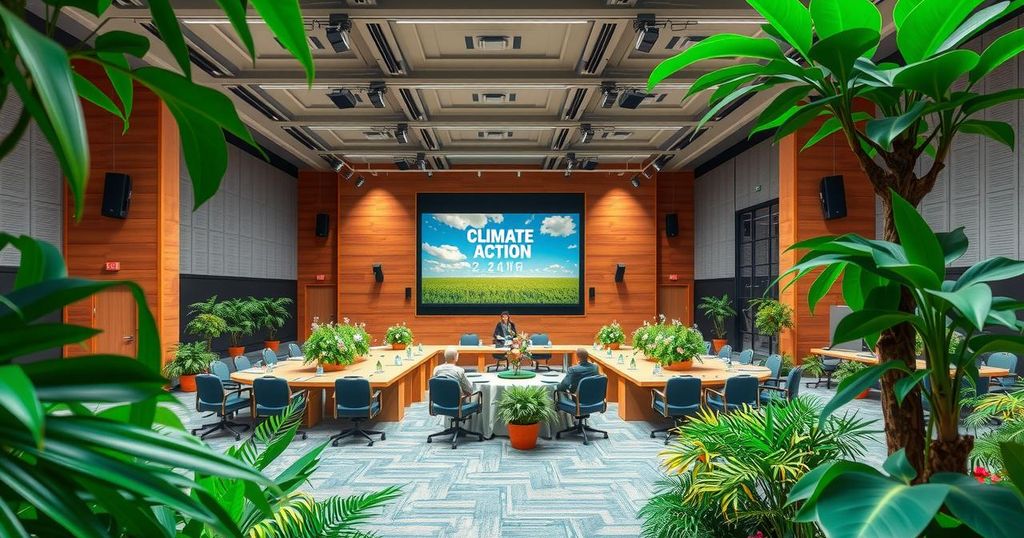The Puerto Rico Chamber of Commerce hosted a climate change summit focusing on the island’s vulnerabilities and strategies for resilient development. Key discussions highlighted the economic implications of neglecting climate issues, with significant potential losses forecasted. Expert insights underscored the urgent need for sustainable infrastructure to protect vulnerable populations and promote economic growth, framing the construction sector’s role as critical for Puerto Rico’s future.
The Puerto Rico Chamber of Commerce convened a significant summit addressing climate change and its ramifications for the island. This event, titled “Summit 2025: Alert! Condominiums, Buildings and Climate Change Collapse,” united public, private, and academic leaders to formulate adaptive strategies for climate-related challenges while ensuring sustainable economic growth.
Luis Pizarro, President of the Chamber, remarked on the summit’s importance for the construction sector and economic viability in Puerto Rico. He stated, “This forum is a key event for the viability of economic development and the construction sector in Puerto Rico,” underlining structural and regulatory issues affecting investments and sustainable growth opportunities.
The discussions at the summit focused on critical areas such as real estate security, climate adaptation strategies, innovative construction practices, sustainable regulatory development, and the implications of climate change on insurance and project financing.
Engineer Carl-Axel P. Soderberg, part of the Committee of Experts and Advisors on Climate Change, presented alarming data regarding the economic fallout due to inaction on climate issues. He warned that neglecting these issues could lead to significant economic losses across various sectors by 2050, estimating potential damages of up to $235 billion in manufacturing alone.
Maritza Barreto, director of the University of Puerto Rico Coastal Planning and Research Institute, outlined the severe impacts of rising sea levels on the island’s infrastructure. She reported on the erosion of beaches across several regions and identified 105 road segments currently vulnerable to coastal flooding and erosion.
Barreto also noted a concerning shift in Puerto Rico’s infrastructure landscape from 1997 to 2017. By 2020, approximately 22% of the population lived in low-lying coastal areas, placing them at increased risk, especially since 32% of essential infrastructure is also located within these at-risk zones. This situation calls for immediate and proactive measures to alleviate the challenges presented by climate change.
Emphasizing the importance of developing resilient construction practices, Pizarro asserted, “A modern, safe and resilient construction sector is essential for Puerto Rico’s economic growth.” This highlights the urgent need for sustainable infrastructure capable of withstanding climate threats.
The recent summit organized by the Puerto Rico Chamber of Commerce shed light on the pressing economic and infrastructural threats posed by climate change. Through expert presentations and discussions, it emphasized the importance of adaptive strategies and resilient development in mitigating these risks. The insights shared by leaders like Luis Pizarro and Carl-Axel P. Soderberg underline the necessity for urgent action to ensure Puerto Rico’s sustainable growth in the face of escalating climate challenges.
Original Source: newsismybusiness.com






